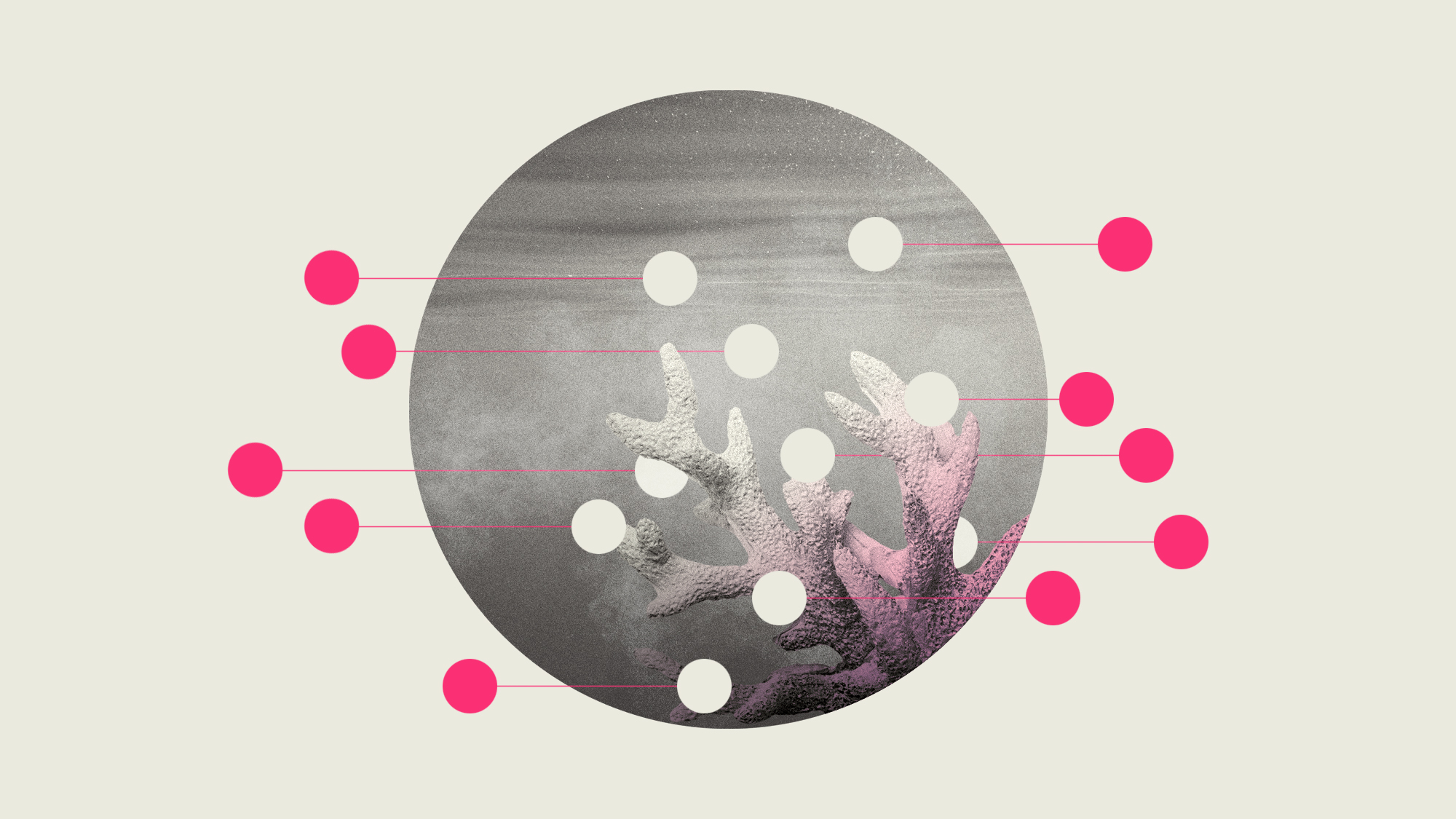The worst coral bleaching event breaks records
Bleaching has now affected 84% of the world's coral reefs


A free daily email with the biggest news stories of the day – and the best features from TheWeek.com
You are now subscribed
Your newsletter sign-up was successful
Coral reefs have long been losing their color due to bleaching, but a recent uptick has caused nearly all of the world's reefs to be damaged. A record-breaking amount of marine life fell victim to the bleaching, and scientists say the effects may be irreversible.
It doesn't appear that the bleaching will subside anytime soon, either, as this most recent bleaching event is the fourth since 1998. As a result, marine biologists and climate change researchers are ringing alarm bells.
How many coral reefs have been bleached?
The bleaching has "impacted 84% of the world's reefs, with 82 countries, territories and economies suffering damage," according to the International Coral Reef Initiative (ICRI) and the NOAA. Unlike chemical bleaching, coral reefs are bleached "when environmental stressors such as heat cause them to expel the colorful, energy-producing algae that live inside them, leaving them white."
The Week
Escape your echo chamber. Get the facts behind the news, plus analysis from multiple perspectives.

Sign up for The Week's Free Newsletters
From our morning news briefing to a weekly Good News Newsletter, get the best of The Week delivered directly to your inbox.
From our morning news briefing to a weekly Good News Newsletter, get the best of The Week delivered directly to your inbox.
Higher ocean temperatures over the past few decades have led to devastating bleaching, with four "bleaching events" since 1998. The most recent event was declared in 2023 and has "grown to be the most widespread on record," said Reuters, with areas "from the Indian Ocean to the Atlantic to the Pacific subjected to intense heat stress for a duration expected to cause bleaching."
This ocean warming has led to more coral reefs being bleached than ever before. Prior bleaching events in "1998, 2010, and 2014-17 saw 21%, 37% and 68% of reefs subjected to bleaching-level heat stress, respectively," said Reuters. The bleaching has become so prevalent that a "widely-used bleaching prediction platform had to add three new levels (Levels 3-5) to their Bleaching Alert Scale to indicate the heightened risk of mass coral mortality," said the ICRI.
Why is this a problem?
It is mainly concerning because of the larger consequences surrounding ocean warming and climate change, given the importance of coral reefs to biodiversity. This latest event "suggests that ocean warming has reached a level where there is no longer any safe harbor from coral bleaching and its ramifications," said Dr. Derek Manzello, the director of Coral Reef Watch, to The Guardian.
Coral bleaching "raises new concerns about the precarious nature of a living network that sustains vibrant fisheries worldwide and helps protect vulnerable coastal communities from flooding," said The Washington Post. The bleaching is "threatening marine life from Fiji to the Florida Keys to Australia's Great Barrier Reef."
A free daily email with the biggest news stories of the day – and the best features from TheWeek.com
Another problem arising from this bleaching uptick is that the "loss of living corals degrades the reef structure, leaving coastal communities along reef-lined coasts to face increasing risks from coastal flooding hazards," according to the U.S. Geological Survey. In Florida alone, the record bleaching event "could increase the coastal flood risk to more than 7,300 people at the cost of $823.6 million annually." Coral reefs "act as a natural buffer, absorbing and dissipating wave energy," reducing the "force and potential damage caused by waves and storm surges," and their degradation means this buffer is being diminished.
Coral reefs "can recover from bleaching if temperatures are less extreme," said UPI. But recent analysis has "indicated a bleak picture of widespread global coral elimination." To help save the reefs, world leaders "need to really commit to reduce fossil fuels and increase investments in clean energies and make it a reality," said Dr. Valeria Pizarro, a senior coral scientist at the Perry Institute for Marine Science, to UPI. People "need them to stop having it on paper and on the news, we need it to be real."
Justin Klawans has worked as a staff writer at The Week since 2022. He began his career covering local news before joining Newsweek as a breaking news reporter, where he wrote about politics, national and global affairs, business, crime, sports, film, television and other news. Justin has also freelanced for outlets including Collider and United Press International.
